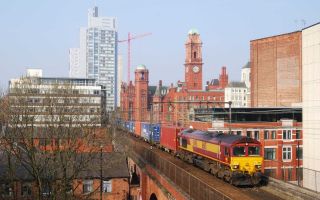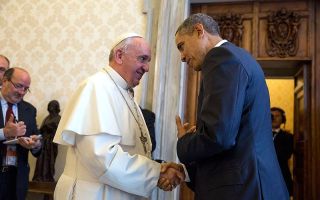Proposals to build a 35-storey tower bloc, dubbed the ‘Flintoff Towers’ by local residents, have been turned down by Manchester councillors after fears it would have a ‘disastrous’ impact on the Castlefield Conservation area
Controversy surrounded the pre-match exploits of four Jacksonville Jaguars players, who were briefly detained over an unpaid bill at a Piccadilly bar.
Review of the first book in Philip Pullman’s new trilogy
Political Christianity should restore its roots of socialism and progressivism
In the first of a series of interviews with candidates standing in to be elected on June 8th, we speak with Gorton’s Labour candidate Afzal Khan about his campaign, his background, and why so few young people engage with politics
As Andy Burnham prepares for the Mayoral Election, we take a look at its potentially huge importance
Some students of Oxford have started a cultural revolution of their own, tolerating nothing that offends and completely disregarding history
The Historian Magazine will this week be releasing a special issue called ‘Lessons from History: The Delhi Belly Interest Rates of 1858’
Jessie Cohen explores theatrical spectatorship in Queer Theatre – is it a step towards political activism or a force for perpetuating passivity?
University of Manchester slips one place in world rankings
According to reports, plans are being made for Margaret Thatcher to be honoured with a state funeral in the event of her death. But is Britain’s first female Prime Minister worthy of the honour?
“While Churchill is seen as the definitive wartime leader, Attlee was the man who ran Britain.” Rob Fuller heaps praise upon one of the great 20th Century Prime Ministers
The Mancunion meet up with Paul O’Neil and Ian Field from Manchester Universities Gilbert and Sullivan Society (MUGGS) to talk about the enduring popularity of Gilbert and Sullivan…
The words ‘Canal’ and ‘Manchester’ may nowadays be most associated with a famous street, but 250 years ago they became synonymous with the dawn of a new era in Britain. The world at that time was changing dramatically, as pioneers of new technology invented machines that would bring the fruits of manual labour to the wider world and propel standards of living to levels beyond imagination.
Mancunion Photo Editor, Nicholas Bojdo
The words ‘Canal’ and ‘Manchester’ may nowadays be most associated with a famous street, but 250 years ago they became synonymous with the dawn of a new era in Britain. The world at that time was changing dramatically, as pioneers of new technology invented machines that would bring the fruits of manual labour to the wider world and propel standards of living to levels beyond imagination. Between 1740 and 1901 the population increased fivefold thanks to improved living conditions, sanitation and healthcare. During that time the urban landscape of Manchester changed considerably, thanks in part to the emergence of a new transport system: the Canal.
- 1
- 2



